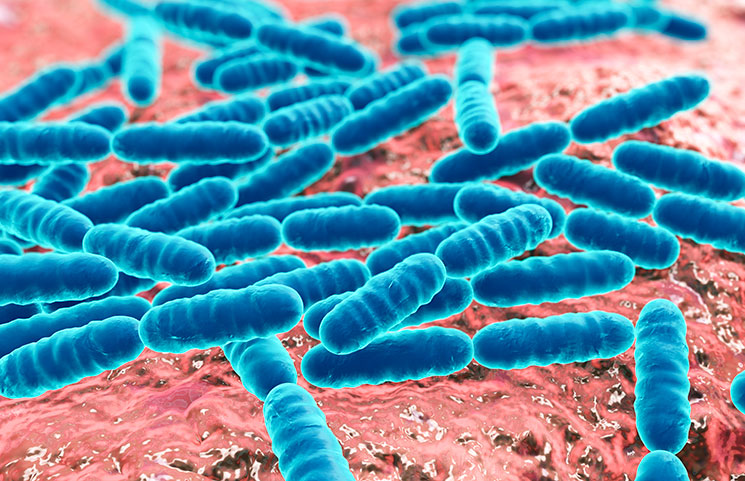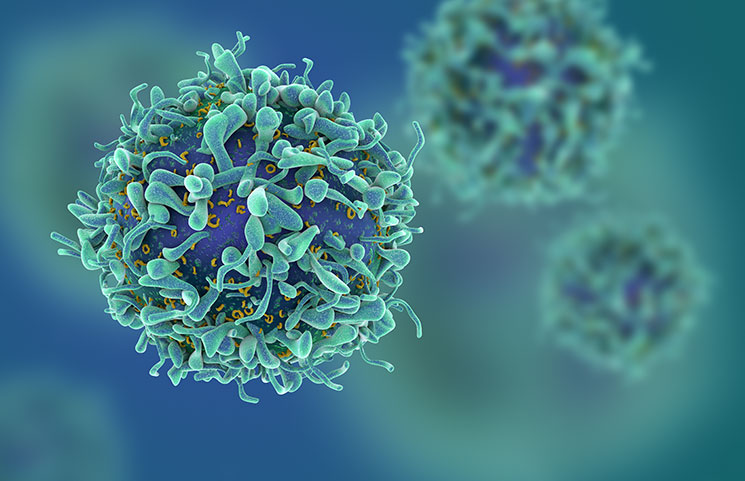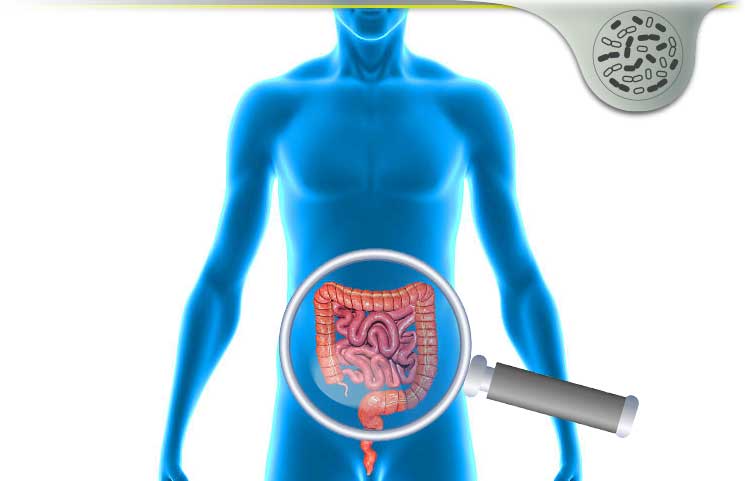You are probably already aware that the human body is home to a whole slew of fungi, bacteria and viruses. These vast collections of microorganisms are known as microbiomes.
Many people hear bacteria and link it to illnesses and diseases. However, bacteria is extremely crucial to your heart, weight, immune system and overall health.
Below, we will touch base on why the microbiome that calls your gut home is so important and how it impacts your overall health.
What Is Gut Microbiome?
Your gut is home to trillions of fungi, viruses, bacteria and other microscopic living creatures known as microorganisms. Microorganisms are also known as microbes.
Your skin and intestines are home to the vast majority of these teeny tiny creatures. That being said, the majority of the microorganisms that reside in the intestines are located in the pocket like area of the large intestine that is known as the cecum. These microorganisms make up the intestinal microbiome.
While your body is home to an endless amount of microorganisms that reside in your body, scientists have spent the most time studying bacteria. This is largely because your body is home to a higher amount of bacterial cells than human cells. The human body is home to a sizeable amount of human cells, numbering about thirty trillion. This seems like a lot until you compare it to the amount of bacterial cells present, which numbers over forty million.
The intestinal gut microbiome is home to over a thousand different kinds of bacteria and every single kind plays an important part in maintaining your health. Most of these bacteria are referred to as good bacteria, however, some of these bacteria can cause more harm than good, resulting in diseases and illnesses.
These microbiomes weigh almost the same amount as your brain, weighing in at an average of three pounds. They serve as an additional organ and serve as a crucial part in maintaining your overall health.
Overall, the microbiome that calls your intestines home is referred to as the intestinal microbiome and is especially important in your overall health and well-being.

How Does The Gut Microbiome Play A Role In Your Body?
Ever since the first humans have walked the earth, their bodies have been evolving and adapting to co-exist with microorganisms. Throughout this time, these microorganisms have played a very crucial role in our bodies.
If humans did not have the intestinal microbiome, they would likely perish. That is just how important the intestinal microbiome really is. This microbiome has been hard at work since the second you were born and will continue to work hard up until you take your very last breath.
Up until recently, it was believed that your body came in contact with microorganisms the first time when you passed through the birth canal. In recent years, studies have shown that fetuses may actually interact with some microorganisms while they are still in the womb. Which means you are exposed to microorganisms before you even take your first breath.
Your intestinal microbiome gets more diverse as you age. That being said, it is crucial for this to happen, as you need a very diverse amount of bacteria for a healthy gut. What many do not know is that the foods you eat play a huge role in how diverse the bacteria in your gut is.
As your intestinal microbiome grows and becomes more diverse, it plays many different roles in your overall health. Some of these ways include the following.

- Consuming Breast Milk – Bifidobacteria are the first bacteria that a baby's intestines grow. This bacteria aids in digesting the beneficial sugars contained within breast milk which are essential for growth and development.
- Aiding In Controlling t Immune System – What many people do not know is that how well the immune system works is affected by your intestinal microbiome. The intestinal microbiome tells the immune cells how to respond to an infection. Pretty cool, right?
- Aiding In Digestion Of Fiber – Since some species of bacteria produce short-chain fatty acids, these bacteria are crucial to the digestion of fiber. Fiber is super important to your health because it may be able to prevent the risk of certain forms of cancer, heart disease, weight gain and diabetes.
- Aiding In Brain Health – Studies have recently shown that the intestinal microbiome may be able to communicate with your central nervous system. The central nervous system is in control of brain function.
There are countless ways that the intestinal microbiome is able to help your body, right from the moment you are born. This microbiome is essential to your overall health and wellbeing. From your brain health, to how your body digests food, to how well your immune system responds, the intestinal microbiome is very important to how the body functions.
Gut Microbiome May Be Able To Aid In Controlling Blood Sugar
When you take into consideration everything else your intestinal microbiome may be able to aid in, it is no surprise that it may also be able to control blood sugar, which lowers your risk of getting type 1 and type 2 diabetes.
A study studied 33 infants who were predisposed to a higher risk of developing type 1 diabetes. This study showed that right before they developed type 1 diabetes, the diversity of the intestinal microbiome dropped dramatically, however, there are a large number of bad bacteria found.

A different study proved that even if you eat the same food as someone else, the blood sugar levels between the two can be very different, due to the different types of bacteria found in their guts.
That being said, the intestinal microbiome may be able to decrease the chance of children developing type 1 diabetes, and by regulating their blood sugar levels, it may be able to prevent adults from getting type 2 diabetes.
Gut Microbiome May Be Responsible For Your Weight
While most of the bacteria that resides in your gut is good bacteria that serves a purpose, if you have a large amount of bad bacteria and bad microorganisms in your gut, it can cause you to get sick. If your good microorganisms and bad microorganisms are not balanced, you may have what is known as gut dysbiosis, which just may be the cause of your weight gain.
There have been many studies that have indicated that if you take two identical twins, in which one of them has a healthy weight and the other who is obese, you will find that their intestinal microbiomes are completely different. This means that the variations in microbiomes is not a genetic thing.
Despite both groups having the same diet, one study took the obese twin’s intestinal microbiome and put it in mice. Those mice experienced more weight gain than the mice that got the microbiome from the twin who had a healthy weight.
Science has indicated that gut dysbiosis is the most likely culprit for weight gain in some people.
There is good news for those who suffer from it, and that is that there are probiotics that can help replenish the healthy microorganisms and aid in losing weight. However, research has shown that probiotics do very little to aid in weight loss overall. So keep that in mind if you start probiotics in hopes of losing a large amount of weight.

Gut Microbiome Could Play A Part In How Healthy Your Brain Is
There are several ways that the intestinal microbiome may play a role in the health of your brain.
Considering that the gut is connected to the brain through millions of nerves, there is a physical link between the two. This means that the intestinal microbiome may be able to control some of the messages that are sent to the brain via these nerves.
Another thing to consider is that some types of bacteria can help produce the chemicals known as neurotransmitters that are found in the brain. Serotonin is one example. Serotonin is made almost completely in the gut and serves as an antidepressant.
Research suggests that people who suffer from different types of psychological disorders have a variation in the bacteria that reside in their guts as compared to people who do not suffer from these disorders. This is another way that it is possible that the intestinal microbiome may be responsible for how the brain functions. However, diets and lifestyle choices may also be to blame in these cases.
Some research suggests that probiotics may be able to combat some of the symptoms linked with depression and various other psychological disorders.
Overall, due to the nerves that run between the gut and the brain, it wouldn't come as a surprise if the intestinal microbiome may play a role in how well your brain functions.

Gut Microbiome May Help Keep Your Heart Healthy
Considering we mentioned how the gut helps to lower your risks of heart disease earlier, it should not come as a surprise that the intestinal microbiome may be able to help you maintain a healthy heart. A study done not too long ago took fifteen hundred people and saw that the intestinal microbiome played a crucial part in producing triglycerides and HDL cholesterol which is known as good cholesterol.
It is also believed that some of the unhealthy bacteria found in the intestinal microbiome may be responsible for causing heart disease because they produce trimethylamine Noxide, also known as TMAO. In case you did not know, TMAO is the chemical that causes blockages in the arteries. These blockages can lead to strokes and heart attacks.
For those who eat red meat, some bacteria that are found in the intestinal microbiome convert the nutrients L-carnitine and choline into TMAO and that can potentially lead to heart disease. On the flip side, some bacteria such as Lactobacilli, may be able to lower the bad cholesterol levels when taken alongside a probiotic.
The intestinal microbiome has both good and bad effects on the health of your heart. Some of the bacteria can lead to dangerous ailments while others can help reduce your chances of getting such ailments.
Gut Microbiome Affects The Gut In Several Ways
It comes as no surprise that the intestinal microbiome affects the gut in several ways. It is believed that this microbiome is may have a role in intestinal diseases such as inflammatory bowel disease, also known as IBD, and irritable bowel syndrome, known as IBS.
For those who suffer from irritable bowel syndrome, the cramps, abdominal pain and bloating is possibly due to gut dysbiosis. Why is that? Well the microorganisms can produce a lot of gas and various other chemicals that can lead to the discomfort that suffers feel.
There are, however, healthy bacteria that have been shown to improve the overall health of your gut. Two of these bacteria are Lactobacilli and Bifidobacteria, which can be found in yogurt and probiotics, can aid in sealing the gaps between the cells in the intestines and can help to prevent you from developing leaky gut syndrome. These bacteria can also aid in stopping the bad, disease causing bacteria from sticking in your intestinal walls.
It is believed that taking probiotics that contain Lactobacilli and Bifidobacteria can actually aid in soothing some of the symptoms related to irritable bowel syndrome.
In short, a healthy intestinal microbiome can aid in digestion, keep the gut healthy and functioning properly, and prevent disease riddled bacteria from hanging out in your gut.

How To Improve The Health Of Your Gut Microbiome
Many things can be done to improve your intestinal microbiome health and shift the balance of good and bad bacteria that reside there. Below, we will touch base on some of the easiest way to do so.
- Consume Fermented Foods – Sauerkraut, yogurt, and kefir are all great choices for fermented foods that all contain good bacteria, such as Lactobacilli, which can help flush out bad bacteria.
- Reduce How Much Artificial Sweeteners You Consume – It is believed that popular artificial sweeteners such as aspartame can cause your blood sugar to spike which can lead to bad bacteria such as Enterobacteriaceae to grow in your intestinal microbiome.
- Eat Various Different Types Of Foods – By eating a variety of different foods, you are introducing a diverse amount of bacteria into your intestinal microbiome. Remember, the more diverse your intestinal microbiome is, the healthier it is. Consuming beans, fiber rich fruits and legumes are all good ways to encourage the growth of Bifidobacteria.
- Give A Plant-Based Diet A Chance – It is believed that vegetarian diets may be able to reduce the amounts of E. coli found in the gut as well as reducing cholesterol levels and inflammation.
- Eat Prebiotic Foods – Fibers that aid in the growth of good bacteria is known as prebiotics. Some of these foods include bananas, asparagus, artichokes, apples and oats.
- Consume Whole Grains – Since whole grains are rich in both beneficial carbs such as beta-glucan and fiber, they are great for aiding the gut bacteria in maintaining your weight, reducing your risk of cancer and diabetes and much more.
- Breastfeed Your Babies For At Least Six Months (If You Can) – While not everyone is able to breastfeed at all, much less for six months, if you can, you are giving your baby's intestinal microbiome a heads start. There is a larger number of Bifidobacteria found in the intestinal microbiomes of children who were breastfed as compared to those who were formula fed.
- Only Take Antibiotics When Absolutely Necessary – It is already commonly known knowledge that antibiotics kill both good and bad bacteria in the intestinal microbiome. This can lead to antibiotic resistance and weight gain in some cases. Therefore, always use antibiotics only when needed.
- Consume Polyphenol Rich Foods – Dark chocolate, green tea, red wine, whole grains and olive oil are all great choices for polyphenol rich foods. The intestinal microbiome breaks down these polyphenols and uses them to help grow more good bacteria.
- Consider A Probiotic Supplement – If you suffer from gut dysbiosis, it would not be a bad idea to start a probiotic supplement regimen. These supplements contain live bacteria, which will be able to add more good bacteria to your gut. This is clearly beneficial all the way around. You can find probiotic supplements in many forms including pills and yogurts that state “live cultures” on the label.
Overall, there are many things you can do to maintain a healthy intestinal microbiome, including eating a vast variety of foods, limiting how often you use antibiotics, taking a probiotic supplement and reducing the artificial sweeteners you consume.
Gut Microbiome Summary
There are trillions of fungi, bacteria and other microorganisms that call your gut home, thus forming your intestinal microbiome. This microbiome plays an enormous part in maintaining your overall health, from aiding with digestion to how well your brain and immune system works.
If your good and bad bacteria are not balanced, you may be faced with heart disease, high cholesterol, weight gain, and other dangerous conditions.
To maintain a healthy intestinal gut microbiome, there are many things you can do, from eating a plethora of different kinds of foods, to limiting the amount of antibiotics you take, to adding fermented foods and whole grains into your diet.
A healthy gut leads to a healthy life. There is no better place to start than in your gut!









